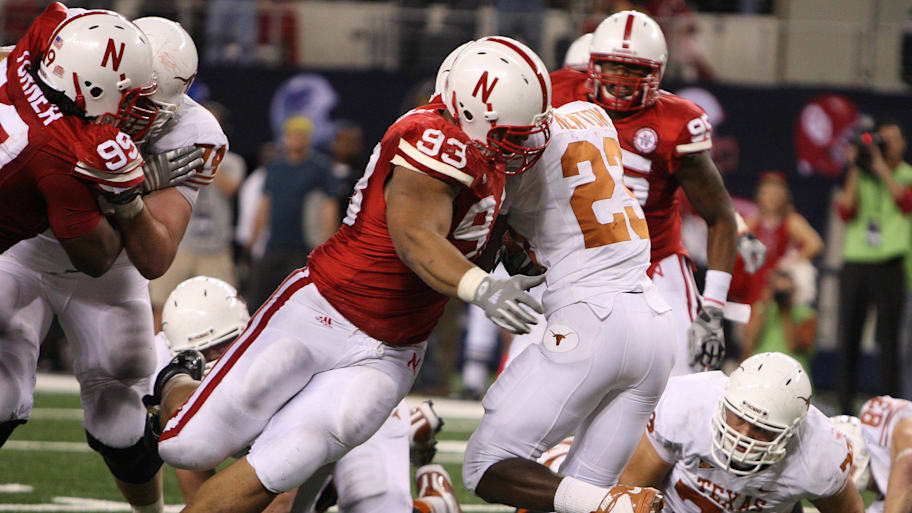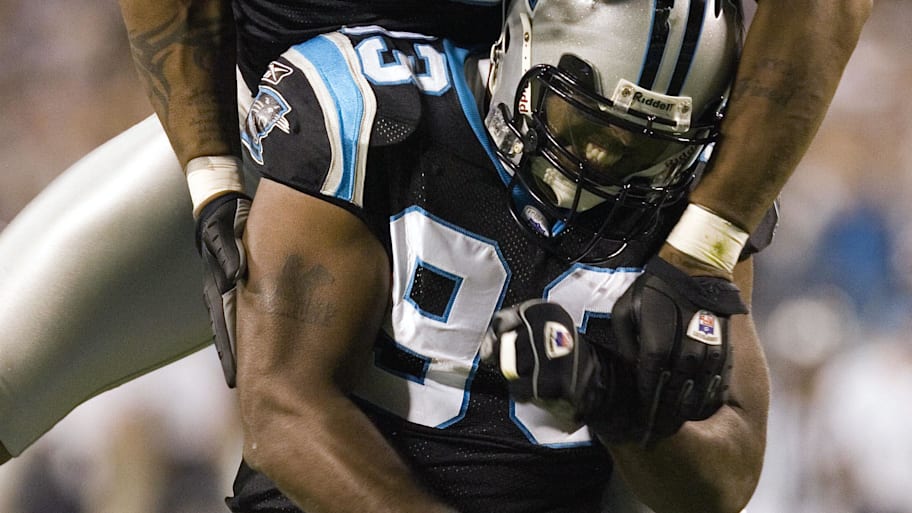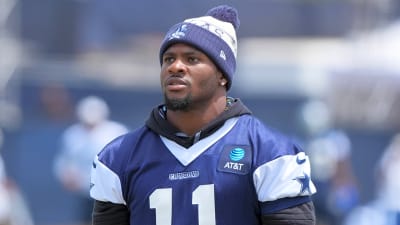
On a cold Black Friday in 2001, Colorado ran through Nebraska and drove a stake through the Huskers’ championship era. It’s narrative shorthand for sportswriters to point to that catastrophic game as the day Nebraska entered a new chapter. The battle since that day has been to reclaim that which they lost - their aura, their swagger, and their pride.
But every time a narrative end to the futility looked to be on the horizon, a rug was pulled.
There was 2005, when Nebraska upset Colorado and Michigan, and Bill Callahan choked up on the sideline. Maybe, finally, players and fans were bought into the new regime. Two years later, he was gone.
There was the 2009 Big 12 Title Game, a chance to slay their most slippery foe and put a period on what had been the most frustrating decade of Nebraska football to that point. Behind a Herculean effort by Ndamukong Suh, the Huskers saw the clock run out, the scoreboard reading 12-10 Huskers. They’d won. You know what happened next.

Then in 2012, Bo Pelini’s directive to “win out” led to six straight victories and a Legends Division crown. It looked like Nebraska would end its 13-year title drought on the 50th anniversary of the sellout streak, retiring Athletic Director Tom Osborne’s triumphant walk into the sunset. Then came 70 points from the nation’s 72nd-best scoring offense and a plucky freshman named Melvin Gordon.
And in 2018, the fairytale homecoming: Scott Frost, the Prodigal son, returned to put a definitive end to the Huskers’ years lost in the wilderness. Instead, the Huskers plumbed new depths of despair once thought impossible.
And so, the Cornhuskers of Nebraska and their scarlet-clad fans still wait for this current episode of misery to pass. As Sam McKewon wrote: “History lurks until winners write a new chapter.” Husker fans still wait eagerly.
Here are the other narratives that defined Nebraska’s first 25 years of the 21st century.
The Gravitation Toward Mediocrity
A Big XII title and a Fiesta Bowl dismantling of Tennessee capped a decade in which the Huskers collected three national championships and reigned as overlords over the sport.
The respect was extended everywhere, even into NFL locker rooms. “It was almost like guys would fall down and worship you,” former rush end Mike Rucker recalled. “That’s the prestige we had in the ’90s, even in the NFL.”

The Huskers started the 2000s ranked number one. It was a slow descent from there.
The cracks formed early. In 2000, 25,000 fans painted Notre Dame Stadium red for a thrilling overtime win. The scare against a flawed Irish team, followed by losses to Oklahoma and Kansas State, hinted at a slippage that 2001 confirmed. Eric Crouch, the archetype of a Nebraska quarterback, carried the Huskers to 11-0 and a No. 1 ranking before back-to-back humiliations – 62-36 to Colorado, then 37-14 to Miami – ended the dream of a national championship and portended something worse.
The bottom fell out in 2002. The once-vaunted Blackshirts got run off the field in blowout losses to Penn State, Kansas State, and even Iowa State, producing their first non-winning season since 1961.
It was a disaster that was years in the making. “Being able to see things under Coach Osborne my freshman year, you could see things changed [when Solich took over],” former Husker Kyle Vanden Bosch was quoted as saying in The Nebraska Way. “We didn’t have the same athletes, the same commitment to do what it took to win from the players.”
Solich worked feverishly to revamp, flipping much of his staff and placing a renewed emphasis on recruiting. The Huskers rebounded the following season with a turnover-hungry defense and an offense that didn’t mess things up for them.
Then on Friday, Nov. 28, 2003, amid widespread rumors of his impending dismissal, Solich’s charges defeated Colorado in Boulder. It was the 414th and final victory of the Devaney coaching family that stretched 42 years. Solich was fired the next day.
At the press conference, Pederson made the remarks that he’d be remembered by forevermore: “I refuse to let this program gravitate toward mediocrity.”
Solich’s final regular season record: 9-3. The Huskers have not lost fewer than four games since.
Bill Callahan’s tenure began with a jarring culture clash. Nowhere was that more obvious than in Lubbock, where instead of running out the clock in a 35–10 loss to Texas Tech, he kept calling passes for a shell-shocked freshman quarterback. One completion and three interceptions later, the final score read 70–10 – a humiliation that felt less like defeat and more like a declaration that Callahan’s pride mattered more than Nebraska’s tradition.
Nebraska would lose to Colorado to end the season, going 5-6 on the year and snapping their NCAA-record 35 consecutive bowl game streak. “It's one game, it's one season. I never look back.”
The friction grew. Receivers Ross Pilkington and Andy Birkel left the program, with Birkel citing his relationship with the head man as a big reason why. “I can’t play for someone I don’t respect.”
Callahan ultimately brought talent to Lincoln, but couldn’t motivate or deploy it effectively. They lost seven in his final season in charge, the defense allowing points and yards in historic quantities.
Pelini righted the ship and came the closest of any coach to restoring the natural order of things. His teams in 2009 and 2010 bordered on elite at times, at least defensively. There may be no better defensive secondary in Husker history than the 2010 edition that featured Prince Amukamara, Alfonzo Dennard (who Prince claimed was better than him), Eric Hagg, and Dejon Gomes.
But the emotional volatility that defined him also defined his teams: they won almost every game they should have and lost almost every one that mattered. “Pelini’s era,” Tom Shatel wrote, “is defined by victories you don’t remember and losses that you do.”
If fans thought they had endured the worst, the Riley years disabused them. His debut season in 2015 began with a Hail Mary loss to BYU and spiraled from there – an overtime meltdown in Miami, the loss to a bad Illinois team on an improvised throw, and a catastrophic defeat at Purdue, a team that had won a single Big Ten game in the previous three years.
Riley course corrected after Lafayette, winning 10 of his next 11 stretching into 2016, none bigger than the win over playoff-bound Michigan State. But his team was exposed in a 62-3 loss to Ohio State and season-ending blowouts to Iowa and Tennessee. By 2017, after a home loss to Northern Illinois, Eichorst was ousted and Riley’s fate was sealed.
It’s difficult to convey through words just how big a deal it was to land Scott Frost, former player and 2017’s AP Coach of the Year, to replace Riley. His arrival inspired a sold-out spring game, lines that stretched for eons at Fan Day, and even a “Scott Frost Day” declared by the governor. Then-defensive coordinator Erik Chinander summed it up well: “Everything was aligned… everyone wanted one guy, and he became the head coach.”
Correspondingly, a great deal of trust and autonomy was given to the golden boy to reverse course. That evaporated over four-and-a-half years of dysfunctional play paired with excuses, transfers, and the interminable close losses.
When once they were a team feared, they became the fearful, waiting for a mistake that would break the camel’s back. The Huskers went 16-31 under Frost and lost their last ten one-score games.
“I refuse to let this program gravitate to mediocrity.”
In the years that followed that remark, the program didn’t just gravitate to mediocrity – it orbited it, hopelessly locked in its pull.
Recent signs hint at a slow climb upward. Since 2021, the win totals have inched up year over year. But milestones remain elusive: no titles since 1999, no wins over a ranked opponent since 2016, and no points scored in overtime in their last ten tries.
After a generation of spinning in place, Nebraska stands at a crossroads: they can keep circling mediocrity or finally break free from its gravitational pull.
More must-reads:
- Top Micah Parsons landing spots as Cowboys' contract talks deteriorate
- Lakers reportedly monitoring two-time All-Star's availability
- The '2024-25 NFL TD catch leaders' quiz
Breaking News
Trending News
Customize Your Newsletter
 +
+
Get the latest news and rumors, customized to your favorite sports and teams. Emailed daily. Always free!








